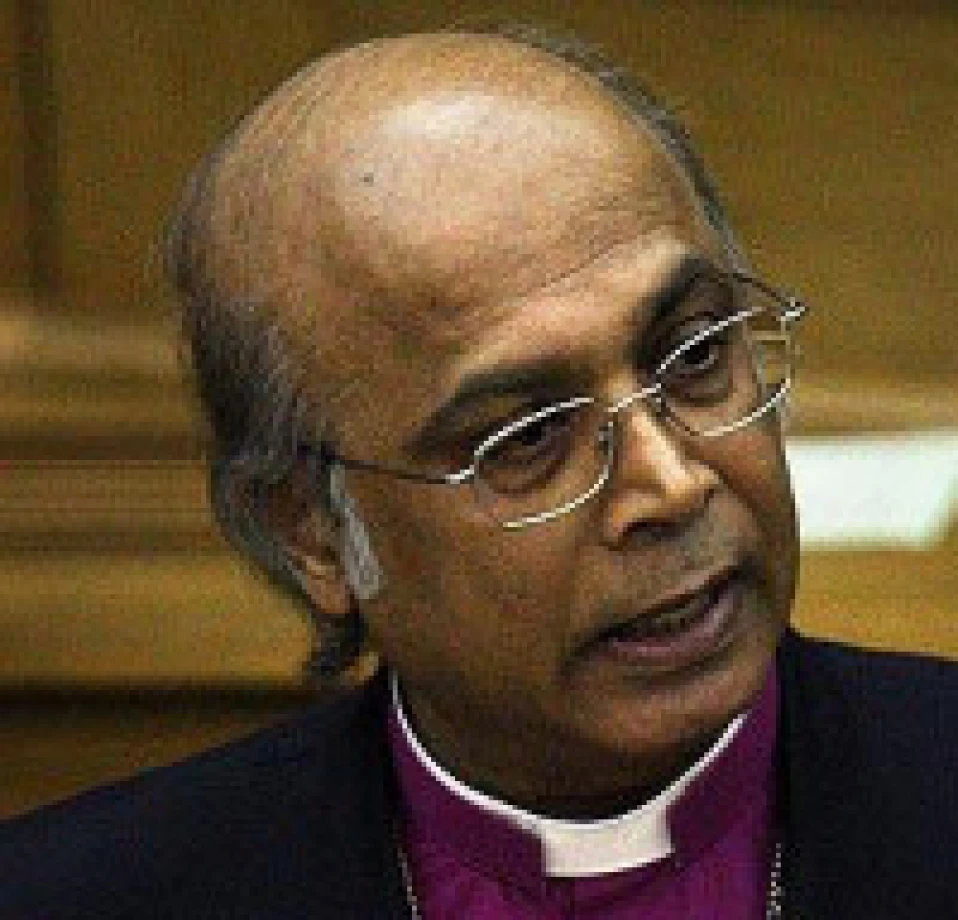Bishop Michael Nazir–Ali appeals to Iranian President to prevent execution of Christian pastor
Bishop Michael Nazir–Ali has appealed to the President of Iran to intervene to save the life of an Iranian Christian pastor who has been sentenced to death for apostasy.
In a letter to President Ahmadinejad, Bishop Michael appeals for clemency for Pastor Youcef Nadarkhani. He says the death sentence against the pastor goes beyond the Iranian law and constitution, as well as the International Covenant on Civil and Political Rights.
Dr Nazir–Ali is president of Oxtrad, the Oxford centre for Training, Research, Advocacy and Dialogue, an organisation set up to defend freedom and support victims of persecution. He is also the patron of Release International, a UK–based religious liberties organisation. The letter is co–signed by Release CEO Andy Dipper. A second letter has been sent to the Iranian Embassy in the UK.
The letter reads as follows:
We the undersigned are writing to you regarding the grave matter of the planned execution of Pastor Youcef Nadarkhani, asking for your urgent intervention in this matter.
It appears that the court who sentenced Pastor Nadarkhani has chosen to impose a sentence which is beyond what is codified in the Iran Penal Code and contravenes both the International Covenant on Civil and Political Rights (ICPPR), and article 23 of the Iranian constitution. Although the court has justified these actions we ask you to appeal to the Iranian Government to have compassion on Pastor Nadarkhani and grant him clemency. Iran has a long tradition of justice and of compassion and we appeal to the Iranian authorities to uphold this tradition in Pastor Nadarkhani’s case.
Background to the story
Iranian pastor Youcef Nadarkhani, who is in his 30s, was arrested in October 2009 after he protested against a government policy that required children, including his two sons, Daniel (9) and Yoel (7), to study the Koran in school.
Pastor Nadarkhani insisted that the Iranian constitution allows for freedom of religious practice. Secret police summoned him before a political tribunal and arrested him for protesting. The charges were later amended to apostasy and evangelism of Muslims.
Pastor Nadarkhani was tried in September 2010 and found guilty of apostasy (leaving Islam) and sentenced to death. Three weeks later on November 13, written
confirmation of the sentence was delivered by the 1st Court of the Revolutionary Tribunal.
Since then Pastor Nadarkhani has been held in Lakan prison, where the authorities have encouraged him to recant his faith and return to Islam, promising to annul his death sentence if he did so. He has repeatedly refused to recant his Christian faith.
The authorities also arrested and imprisoned his wife, Fatemeh, for four months before she was released on appeal.
According to various reports, an appeal filed on behalf of Pastor Nardarkhani was
rejected on July 27, and a written verdict from the Supreme Court confirmed the death sentence.
The Supreme Court then called for the case to be re–examined to establish whether Pastor Nardarkhani had been a practising Muslim during adulthood before he converted to Christianity. The court ruled that although he had not been a practising Muslim, he was nevertheless guilty of apostasy because of his Muslim ancestry. Observers fear he could be executed at any time.
However, the Fars News Agency is now claiming that apostasy is no longer the issue, which could signal a shift in the way Iran is presenting the case.
In a news report dated October 2, the news agency claimed Pastor Nardarkhani is standing trial for rape, extortion and security–related crimes. The report quoted the Deputy Governor–General of Gilan province, Golam–Ali Rezvani, as saying of Pastor Nadarkhani: ‘He is a Zionist, a traitor and had committed security crimes’.
The Fars news report
also quoted the Governor as saying ‘no–one can be executed [in Iran] for changing his/her religion’.
But in 2010 the Iranian Supreme Court stated that Pastor Nadarkhani had been charged and ‘convicted of turning his back on Islam, the greatest religion, the prophecy of Mohammed at the age of 19’.
